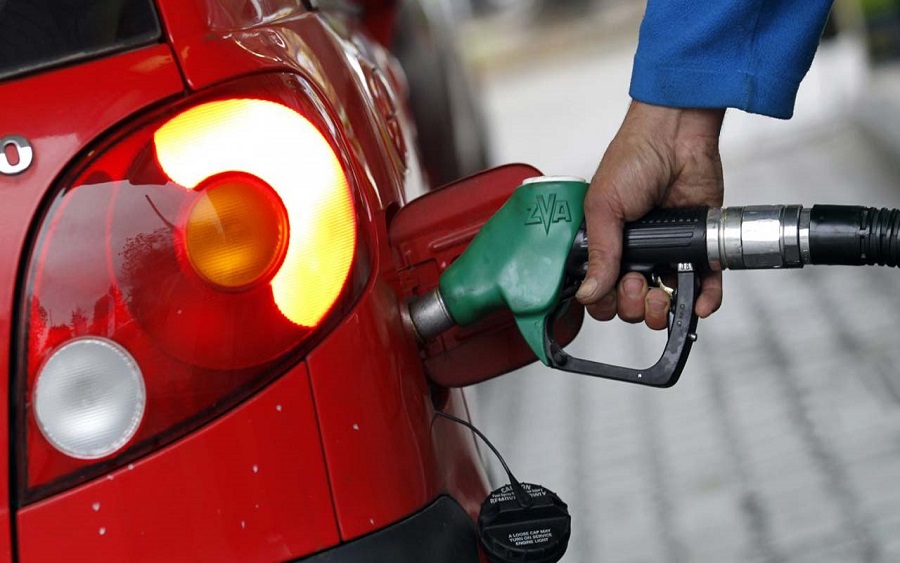As Nigerians continue to groan under the fuel scarcity running for the third week, petroleum marketers may be on the edge over what they described as additional burden from the Nigerian National Petroleum Company (NNPC) Limited which, just last week, introduced a N500,000 transshipment charge on petrol.
NNPC Limited, in a letter dated February 18, 2022, said the new charge is to cover for ship-to-ship operations for retailers, especially depot operators, taking delivery of petrol consignment from NNPC at the ports.
- We have taken all measures to tackle fuel scarcity, NNPC GMD tells reps
- Adulterated fuel: Northern groups rescind call for sack of NNPC mgt
The current fuel scarcity, which is easing, reared its head early this month after cases of adulterated petrol across retail stations that were said to have affected vehicles just as parallel marketers sold a litre for over N600.
While in the heat of that, NNPC in the letter announced the new N500,000 Ship-to-Ship (STS) coordination charge for each transshipment operation of petrol involving the NNPC Marine Logistics.
The letter titled, “Payment of STS Coordination Charge” which was signed by O. I. O. Ajilo for the Group General Manager, Shipping said: “Please be informed that the NNPC management has directed that effective (from) 10th February, 2022, the sum of N500,000 only will be charged for STS coordination fee for each transshipment operation involving NNPC Marine Logistics.”
NNPC Ltd explained that the charge covers manpower and logistics required for coordination and production of cargo documents for the transshipment operations.
Also, in another letter from the General Manager, Marine Logistics, titled, ‘Commencement of STS Coordination Charge,’ and issued on February 8, 2022, NNPC said its functions include coordinating ship-to-ship transshipment activities for the Pipelines and Products Marketing Company (PPMC), NNPC Retail Limited (which are NNPC subsidiaries) and third-party marketers, as well as for facilitating the processing of clearances for shuttle vessels and preparation of Bill of Lading on completion of STS.
It then clarified that third-party marketers who do not hire marine logistics vessels were serviced free in the past but would now need to pay the new charge.
Marketers kick over new charge
Meanwhile, petroleum marketers are concerned over the new charge as they feared it could trigger a rise in petrol price.
Although the Depot and Petroleum Products Marketers Association of Nigeria (DAPPMAN) declined to comment on the new charge, a source said the association had written to the NNPC highlighting the implication of the shipment charges especially to the retail price of petroleum.
“This is definitely an additional cost on marketers but we are interfacing with the NNPC to agree on the best possible way of mitigating this Ship-to-Ship coordination charge,” the official said.
President of the Independent Petroleum Marketers Association of Nigeria (IPMAN) Debo Ahmed said the charge does not affect independent marketers as they deal directly with NNPC depots.
However, the Major Oil Marketers Association of Nigeria (MOMAN) said it would resist any planned increase in STS charges by NNPC.
It said it has written to the federal government on the implication of any new hike on members of the public, considering the current scarcity of petrol in most parts of the country.
Executive Secretary of MOMAN Clement Isong, in an exclusive chat with Daily Trust, said there are many government agencies that would want to impose new charges on marketers unduly without considering the policies of government as regards changes.
“There is a price ceiling placed on STS by the government. Any charges that would not be passed on to the consumers would be resisted. Marketers cannot be made to bear the brunt of changes.
“We have communicated our position on the issue to the federal government. We don’t want to be blamed at the end of the day,” he added.
Speaking on the persistent scarcity of petrol, Isong said it depends on NNPC which is the sole importer of fuel. He said more products have been imported but that it would take a while for it to clear.
Oil price hits $105 over Russia, Ukraine faceoff
Crude oil price hit a record $105 per barrel on Thursday after an escalated face-off between Russia and Ukraine being the highest since August 2014, records show.
Russia is said to be the third-largest oil producer and second-largest oil exporter. Already, the Organisation of Petroleum Exporting Countries and its alliance OPEC+ of which Nigeria is a member, is expanding production output but more countries are unable to meet their quota prompting supply decline amidst rising demand.
Reports said Russia launched an attack on Ukraine early Thursday with Ukraine guarding its borders and downing at least five Russian fighter jets.
According to a Reuters report, at least three major buyers of Russian oil were unable to post Letters of Credit from Western banks to cover purchases on Thursday.
Brent crude was up $7.26, or 7.5%, at $104.10 a barrel as of 1437 GMT, having touched a high of $105.79.
If the faceoff continues, experts fear crude oil price may continue to be above $100 per barrel unless there is more alternative of the US shale oil or the Iran crude.
The rise in crude oil price means higher income for Nigeria as the current N17 trillion budget is benchmarked on $62 a barrel.
OPEC+ continues to expand output, but output remains limited by sabotage at 1.4 – 1.6 million barrels per day (bpd) for Nigeria.
However, on the other hand, it may translate to higher hike in petrol price for local consumption amidst issues of funding over N3 trillion subsidy for this fiscal year.
NNPC Ltd had proposed up to N270 billion per month to sustain the N162 to N165 per litre retail price despite having a landing cost of over N200, Daily Trust reports.
Expert reacts on oil price rise
According to a senior lecturer (Economics) at the Lagos Business School, Dr. Bongo Adi, the 1991 Gulf War gave Nigeria a windfall, during the Babangida era. It wasn’t fully accounted for.
“Oil is $105/barrel; the fuel pump price is high; we see high inflation all over the world. Nigeria is also importing from the same market, so it’ not going to help us. And that is what I say about the current high price of petrol in Nigeria, which some people erroneously link to the contaminated fuel,” he explained.
Adi said even though oil has risen, our production remains at about 1.4mb/d, against 2.2mb/d. Nigeria is actually running short on volume, so that means revenue suffers a severe shortfall.
“So, if the Dangote Refinery comes on stream, I can say that this is going to be a windfall for Nigeria. Because from what we read, Nigeria is going to sell crude oil to the refinery in naira not in dollars,” Adi enthused about the refinery billed to begin operation by year end.
By Vincent Nwamma, Eugene Agha, Abdullateef Aliyu (Lagos) & Simon E. Sunday (Abuja)

 Join Daily Trust WhatsApp Community For Quick Access To News and Happenings Around You.
Join Daily Trust WhatsApp Community For Quick Access To News and Happenings Around You.


